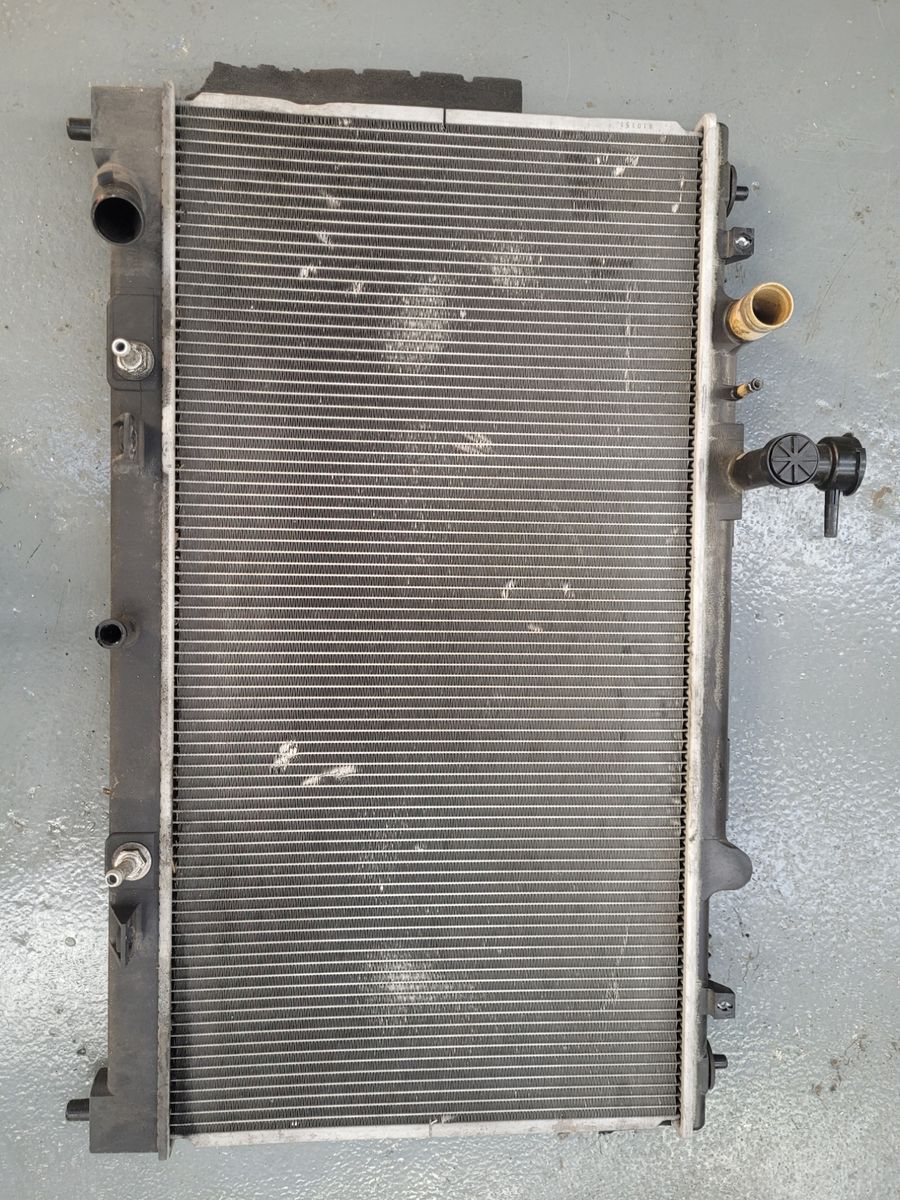About the radiator:
Your cooling system consists of several components that circulate coolant throughout your engine and prevent the engine from overheating. The radiator is one of the main parts of your car’s cooling system. Its role is to remove heat from the coolant, allowing it to flow back into the engine.
Radiators consist of a series of small tubes layered with small fins. As coolant enters the radiator, these fins help transfer heat from the coolant into the air outside. The radiator is often accompanied by a cooling fan, which accelerates the cooling process, particularly at low vehicle speeds and while idling.
Learn more about how the radiator works
When should the radiator be replaced?
The radiator consists of several tanks and tubes. These tanks and tubes are often made of plastic which is prone to eventually cracking. When these parts crack, coolant will leak and the engine will not be cooled as efficiently.
For this reason, it is important that the radiator is repaired or replaced as soon as a problem occurs. Over time, coolant leaks can result in an overheating engine, which damages engine components and results in a very expensive repair.
Symptoms of a damaged radiator:
- Visible coolant leaks – When the radiator is leaking, you may notice coolant forming a puddle under the front of your car. Coolant can be identified by its green or red colour. A leak can also be identified by examining levels in the coolant reservoir tank.
- Overheating engine – A malfunctioning radiator can cause an increase in engine temperature. This can be observed via the dashboard’s temperature gauge. As the engine reaches a critical level of heat, damage can occur. For this reason, we recommend that you pull over and turn your engine off if your car begins to overheat.
- Sludge or other contaminants in the radiator – sometimes, other contaminants can find their way into the radiator. This results in the fluid becoming a dark, oil-like colour. Contaminants will turn into sludge, which can often look like the colour of rust, which can block the flow of coolant, restricting its flow to the engine.
- Low coolant level – If the radiator is damaged, it may not be able to hold as much coolant, causing the coolant level to drop. This can lead to engine overheating and other problems.
- Steam coming from the engine – If the radiator is severely damaged, it may cause steam to come out of the engine compartment.
How to extend the lifespan of your radiator:
- Keep the coolant clean and topped up: Regularly check the coolant level and make sure it is clean and topped up. Dirty or low coolant can cause the radiator to overheat and become damaged.
- Flush the cooling system routinely: Over time, sediment and debris can build up in the cooling system, causing the radiator to clog and become less efficient. Flushing the system regularly can help remove this buildup and keep the radiator working properly.
- Inspect the radiator for damage: Regularly inspect the radiator for signs of damage, such as cracks, leaks, or corrosion. If you notice any issues, have them repaired as soon as possible to prevent further damage.
- Keep the radiator clean: Dirt and debris can accumulate on the radiator fins, reducing the airflow and causing the radiator to overheat. Regularly clean the radiator with a soft brush or compressed air to remove any debris.
- Avoid overheating the engine: Overheating the engine can cause the radiator to become damaged. Make sure to check the temperature gauge regularly and stop driving if the engine overheats.
- Use high-quality coolant: Using a high-quality coolant can help prevent corrosion and damage to the radiator and cooling system.
Car Radiator Repair and Replacement in Hamilton
Are you having problems with your car’s radiator? If so, we can help! At Grimmer Motors, our team of experienced mechanics can replace the radiator, fans, and other cooling system components in your car. This allows for your engine to remain cool. We can also quickly diagnose the source of cooling system faults.
For radiator and cooling system repairs and replacement in Hamilton, contact Grimmer Motors today!


